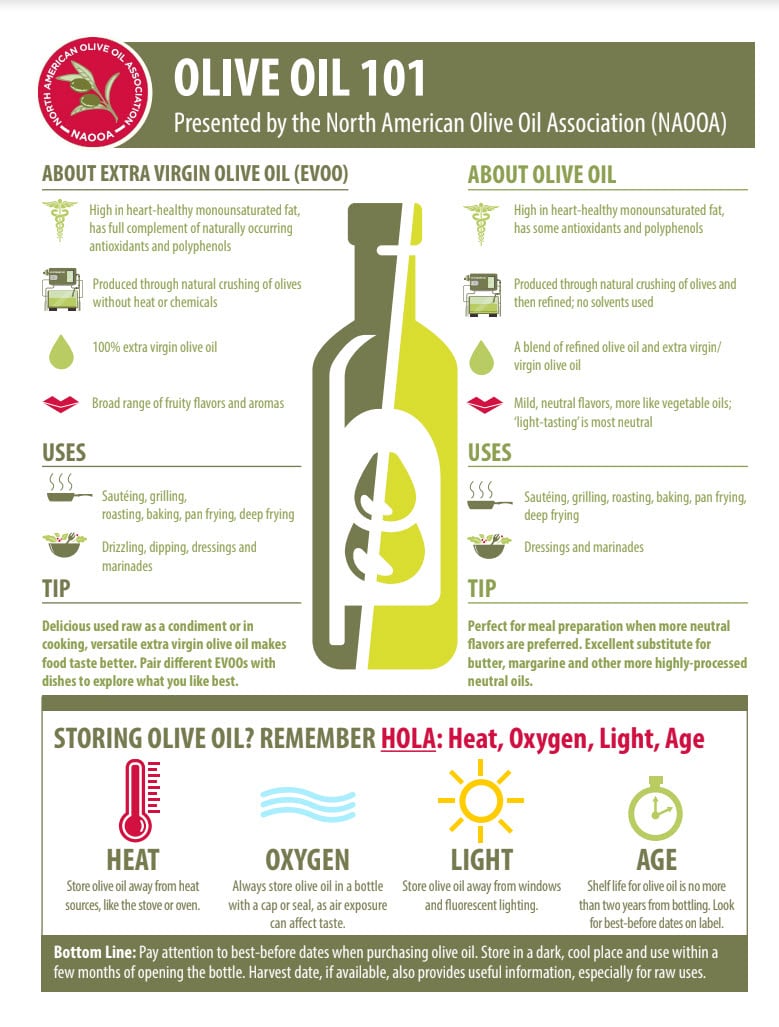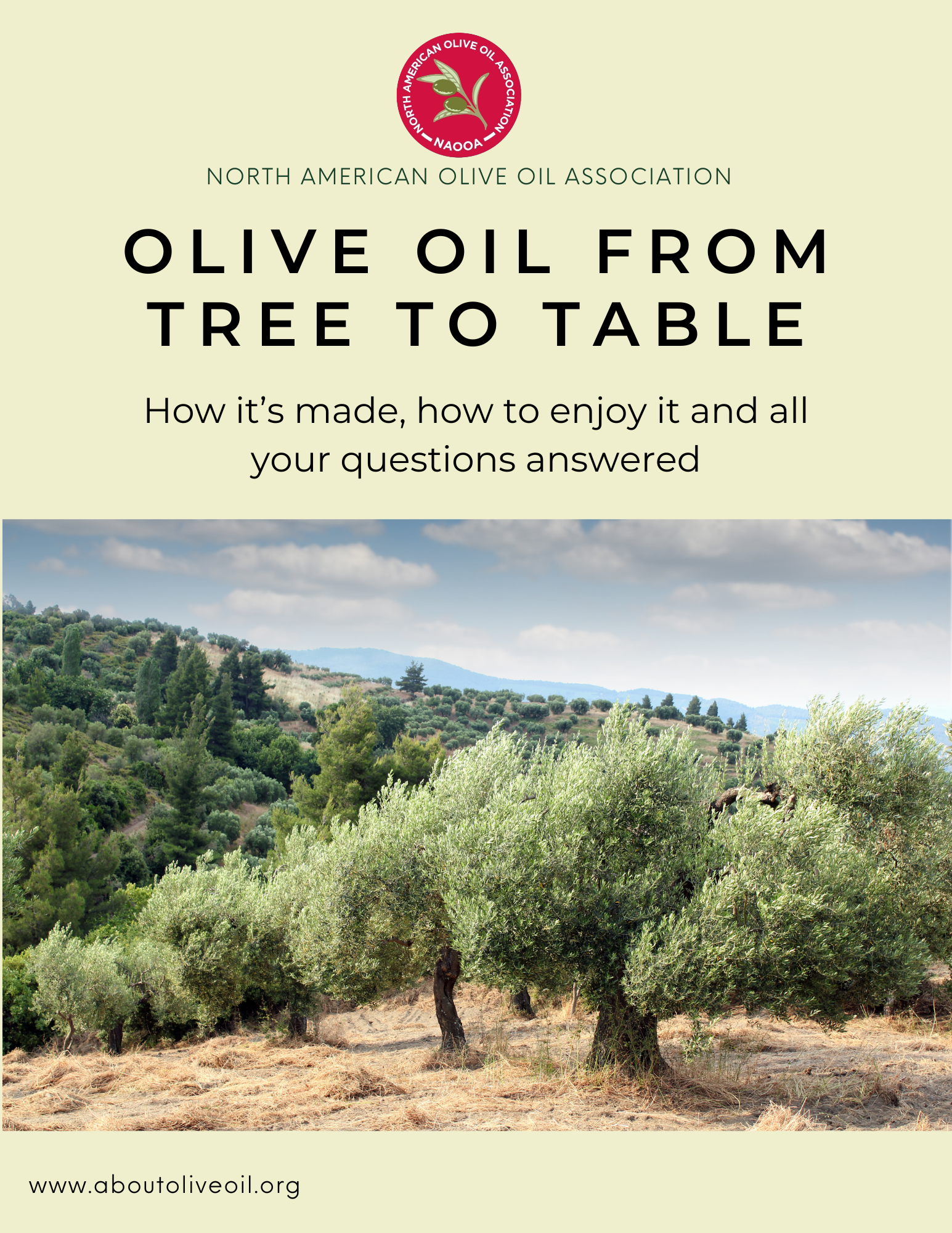Here's a visual guide to buying, storing and purchasing olive oil.

Olive Oil 101Presented by the North American Olive Oil Association |
|
|
About Extra Virgin Olive Oil
|
About Olive Oil
|
|
Uses
|
Uses
|
|
Tip Delicious used raw as a condiment or in cooking, versatile extra virgin olive oil makes food taste better. Pair different EVOOs with dishes to explore what you like best. |
Tip Perfect for meal preparation when more neutral flavors are preferred. Excellent substitute for butter, margarine and other more highly-processed neutral oils. |
STORING OLIVE OILS? REMEMBER "HOLA": Heat, Oxygen, Light, AgeAvoid heat, air and light to prolong the shelf life and maintain quality of olive oil. Heat - Store olive oil away from major heat sources, like the stove or oven. Oxygen - Always store olive oil in a bottle with a cap or seal, as air exposure can affect taste. Light - Store olive oil away from windows and fluorescent lighting. Age - Shelf life for olive oil is no more than two years from bottling. |
|
BOTTOM LINEPay attention to best-before dates when purchasing olive oil. Store in a dark, cool place and use within a few months of opening the bottle. Harvest date, if available, also provides useful information, especially for raw uses. To download a PDF version of this page, click Olive Oil Guide. |
|





